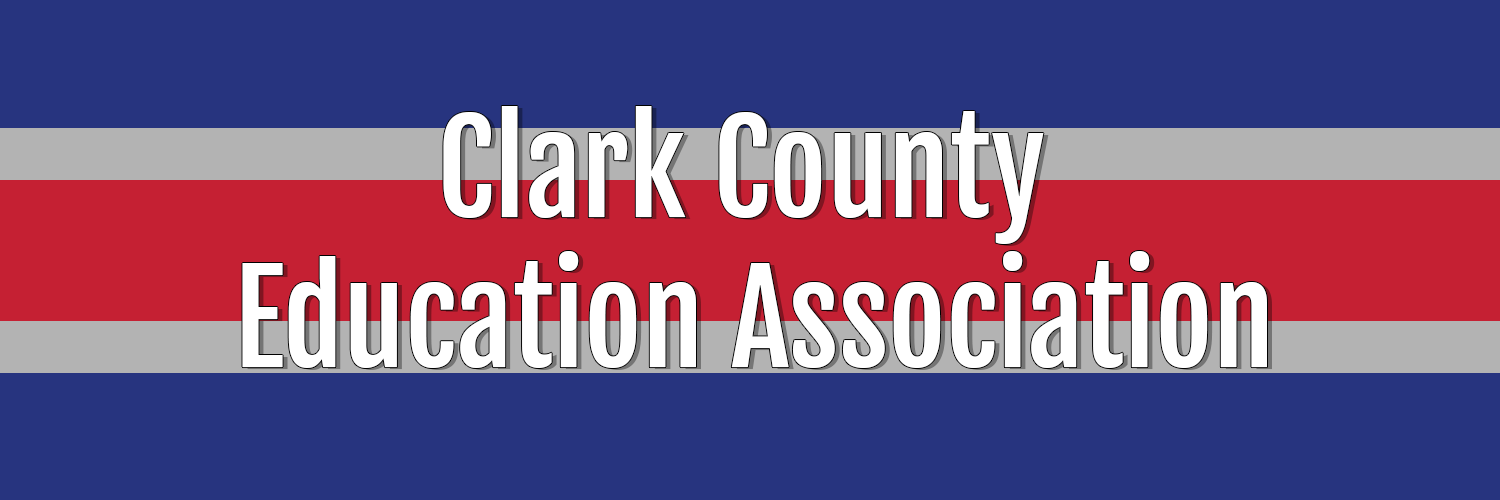To opt out of CCEA dues:
- Enter your information into the form below and click “submit.”
- On the resulting page, click the link to open your customized form. You will also receive an email with a link to your form.
- Print the form. If you check the appropriate box about needing a printed version, we’ll mail you a copy of the form.
- Sign and date the form.
- Mail the completed form to the address at the top of the form. We highly recommend sending it via certified mail.
"*" indicates required fields
In Nevada, the Clark County Education Association (CCEA) is the designated union for teachers and other licensed education professionals employed by the Clark County School District.
For years, public employees in many states were forced to pay union dues or fees as a condition of employment, allowing unions to take their members for granted. However, because of the U.S. Supreme Court’s 2018 decision in Janus v. AFSCME, public employees can no longer be required to financially support a labor union against their will.
The court ruled that the mandatory dues requirement violated workers’ First Amendment rights to freedom of speech and association, and that public employees have the right to choose for themselves whether to pay any union dues or fees.
You can opt out of CCEA dues by filling out the form above, printing it and mailing it to the union.
Frequently Asked Questions
You should receive some acknowledgement of your request from the union within a few weeks.
In most cases, union dues are automatically deducted from employees’ paychecks. Monitor your paychecks to make sure the dues deductions stop. If the deductions continue for more than a couple of pay periods after submitting your opt-out request, contact the union.
Finally, keep in mind:
Opting out is your constitutional right. However, unions like CCEA sometimes place restrictions on when they will accept opt-out requests. If the union refuses to immediately cancel dues deductions from your pay, ask them to provide you with written documentation and contact us for assistance.
As of 2023, full-time educators pay $846 per year in CCEA dues.
Yes. CCEA has arranged to be the “exclusive representative” of the bargaining unit, meaning it is impossible for teachers to get out of the terms of the contract, even if they cease paying dues.
In exchange for the monopoly on this particular service, CCEA is legally obligated to represent all employees in the workplace, including those who choose not to join the union as members.
The collective bargaining agreement negotiated by the union and your employer will continue to set the terms and conditions of your employment and the union will continue to represent you in grievances, contract enforcement, discipline assistance or other proceedings governed by the collective bargaining agreement.
No. All provisions of the collective bargaining agreement between the union and your employer will continue to govern your employment. Your wages, health benefits, retirement and anything else governed by the collective bargaining agreement will remain unchanged if you opt out of CCEA.
While the terms of the contract will still govern your employment, union officials commonly prohibit nonmembers from participating in internal union affairs, such as attending union meetings, voting for union officers or participating in contract ratification votes. You’ll also be ineligible for any special “members only” benefits, such as discounts on additional insurance, scholarship programs, or deals the union has arranged with businesses. You may no longer receive the union newsletter or similar publications.
People have many reasons for not wanting to support the union. Some simply do not believe the services the union provides are worth the dues it charges. Others may find the union’s one-size-fits-all agenda does not serve them well because they are new to the profession, have a specialty that is not acknowledged in bargaining, or they believe their effectiveness is undercompensated. Some resent the union’s role in enabling and defending underperforming employees. Many find the union’s political activity and use of dues to advance partisan causes, candidates and ideology distasteful. Still others believe that union officials are corrupt and unaccountable to their membership.
Unions representing public employees are not governed by the usual consumer protection or anti-trust laws, so abuses are common. Unions can charge whatever they wish. They can spend dues money on anything they want. Often, they do not have to disclose how dues money is spent to members. They can speak for employees without consulting or informing them. They can injure some members’ interests while advancing the interests of others. Unions even have the ability to prevent employees from getting help in their workplace from other sources. They are not governed by any obligation to provide quality service, and almost never have to seek approval of the people they represent in an election to continue as the exclusive representative.
CCEA
In fiscal year 2022, CCEA collected $9.27 million in dues and fees from its members, according to reports that the union must file with the U.S. Dept. of Labor.
In that same year:
- $1.04 million was spent by CCEA on lobbying.
- 835,000 was spent on the Defense Fund
- $82,900 was spent on legal affairs
- $56,700 was sent on office expenses
CCEA paid 23 officers and employees in 2022, 6 of whom were paid six figures. CCEA Executive Director, John Vellardita, received $279,678, a $61,329 increase from last year. The union currently holds $12.1 million in cash reserves, a 3.88 million increase from last year
CCEA’s most recent 990 reports are available here: 2021, 2022, 2023,


